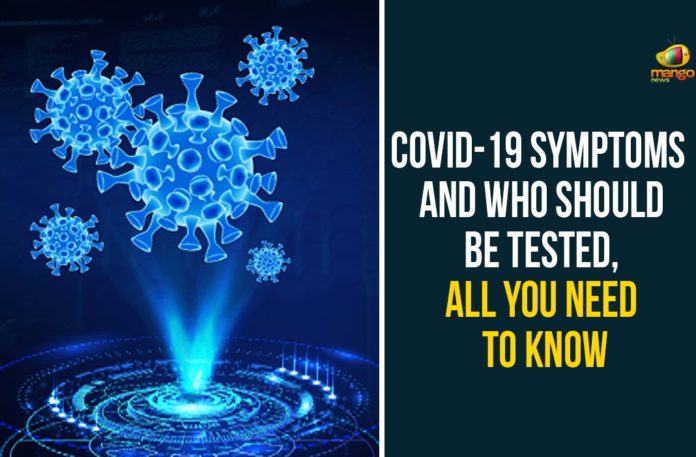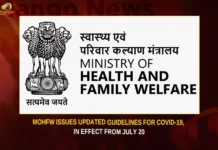Coronaviruses are a family of viruses that can cause illnesses such as the common cold, severe acute respiratory syndrome (SARS) and Middle East respiratory syndrome (MERS).
In December 2019, a new coronavirus was identified as the cause of a disease outbreak that originated in China.
The virus is now known as the severe acute respiratory syndrome coronavirus 2 (SARS-CoV-2). The disease it causes is called coronavirus disease 2019 (COVID-19). In March 2020, the World Health Organization (WHO) declared the COVID-19 outbreak a pandemic.
Public health groups, including the U.S. Centers for Disease Control and Prevention (CDC) and WHO, are monitoring the pandemic and posting updates on their websites. These groups have also issued recommendations for preventing and treating the illness.
igns and symptoms of coronavirus disease 2019 (COVID-19) may appear two to 14 days after exposure. This time after exposure and before having symptoms is called the incubation period. Common signs and symptoms could include:
Fever
Cough
Tiredness
Early symptoms of COVID-19 may include a loss of taste or smell.
Other symptoms could include:
Shortness of breath or difficulty breathing
Muscle aches
Chills
Sore throat
Runny nose
Headache
Chest pain
This list is not all inclusive. Other less common symptoms have been reported, such as rash, nausea, vomiting and diarrhea. Children have similar symptoms to adults and generally have mild illness.
The severity of COVID-19 symptoms can range from very mild to severe. Some people may have only a few symptoms, and some people may have no symptoms at all. Some people may experience worsened symptoms, such as worsened shortness of breath and pneumonia, about a week after symptoms start.
People who are older have a higher risk of serious illness from COVID-19, and the risk increases with age. People who have existing chronic medical conditions also may have a higher risk of serious illness. Chronic medical conditions that increase the risk of serious illness from COVID-19 include:
Serious heart diseases, such as heart failure, coronary artery disease or cardiomyopathy
Chronic obstructive pulmonary disease (COPD)
Type 2 diabetes
Severe obesity
Chronic kidney disease
Sickle cell disease
Weakened immune system from solid organ transplants
Other conditions may increase the risk of serious illness, such as:
Asthma
Liver disease
Chronic lung diseases such as cystic fibrosis
Brain and nervous system conditions
Weakened immune system from bone marrow transplant, HIV or some medications
Type 1 diabetes
High blood pressure
This list is not all inclusive. Other underlying medical conditions may increase your risk of serious illness from COVID-19.
COVID-19 Self-Assessment Tool
Assess your symptoms and find out if you’re a candidate for a coronavirus disease 2019 (COVID-19) test.
When to visit a doctor or get COVID-19 test?
If you have COVID-19 symptoms or you’ve been in contact with someone diagnosed with COVID-19, contact your doctor or clinic right away for medical advice. Tell your health care team about your symptoms and possible exposure before you go to your appointment.
If you have emergency COVID-19 signs and symptoms, seek care immediately.
Emergency signs and symptoms can include:
Trouble breathing
Persistent chest pain or pressure
Inability to stay awake
New confusion
Blue lips or face
If you have signs or symptoms of COVID-19, contact a doctor or clinic for guidance.
In several regions of India, respective governments initiates helpline centres and numbers which would help patients to be aware of the disease.
Globally, the disease has infected as many as 12 million people.
Stay tuned for further updates.





































